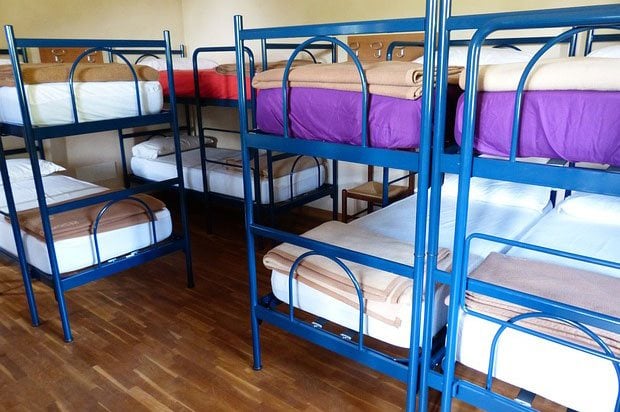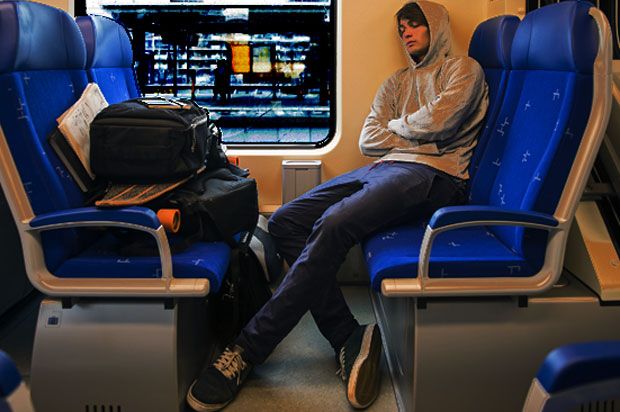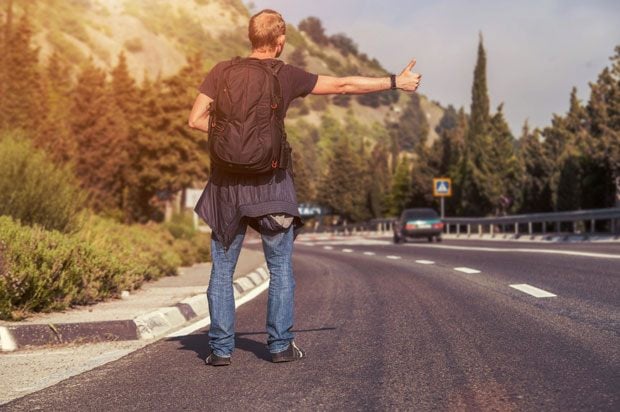Youth hostels

Bed-hopping bliss or bed-bug biting? Find out what a youth hostel is and what to expect when you stay in one, whether you’re going mountain biking, national park hiking or you’re just looking to make some new friends.
What’s a youth hostel?
Youth Hostels are run by the National Youth Hostel Association in each country. Each hostel must meet the Assured Standards set by Hostelling International (a non-governmental, not-for-profit organisation working with the United Nations Educational, Scientific and Cultural Organisation UNESCO and the World Tourism Organisation).
Sometimes called backpacking hostels, they offer budget accommodation that is usually of a decent quality. They allow you to get to know a country at low cost, make friends with other travellers, and pick up insider tips on where to go and where to avoid.
There are many hostels dotted around England and the rest of the UK, particularly in beautiful locations that attract a lot of hikers like the Lake District or Peak District. Check out our tips for cheap UK travel to learn how to get there on the cheap.
How to find a decent one
It is better to reserve a hostel beforehand, however if you didn’t then head for the Tourist Information office. There you can get a list of all the local accommodation options as well as maps of the area. Talking to other travellers on the train or looking through a guidebook can also give you an idea of places to stay. Call ahead from the station or do a quick Google to see if vacancies exist and then make sure you have the local currency to pay for your first night’s stay. You can also use your phone to book ahead, though be careful of those pesky roaming charges.
You might find some hostels with private en suite rooms (normally for families or large groups of people staying together), but if that’s your main concern, a hotel or AirBnB might be more your bag.
How many people stay in a room in a hostel?
Usually it’s more than just a room for you and your friend. Expect to share a bedroom with quite a few strangers. Find out what dormitory facilities the hostel offers. Some hostels may offer mixed-gender dormitories, while others may not.
Remember that dorm numbers vary. One room in one hostel might hold six people, while another hostel might have 32 beds bunked up in the dormitory. Can you sleep with 31 other people in the room? If not you may need to raise more cash to pay the slightly higher fee for a smaller dorm, and then only if there’s space. Some hostels do also offer private rooms, twin rooms and four-bedded rooms. Smaller rooms are becoming more common now.
How old are people in hostels?
Despite the ‘youth’ in their titles, hostels will take travellers of any age. It is only in Bavaria, Germany that places are restricted to individual travellers under-26. If places are limited, young travellers get priority. Some hostels have rules regarding young children. Check with each individually beforehand.
Membership to youth hostels in the UK
Joining a national youth hostel association can save you money when staying at a youth hostel. For youth hostels in the UK there are YHA hostels that cover England and Wales, the Scottish Youth Hostel Association and Hostelling International Northern Ireland. The Irish Youth Hostel Association covers the Republic of Ireland.
Membership costs depend on which association you join; but is about £10-£15 depending on how old you are. Because they are all members of Hostelling International, membership of one allows you reduced rates at the others, as well as the other affiliated hostelling associations around the world.
What to expect from a hostel:
- Your sheets are given to you (in exchange for a deposit) at check-in. Most hostels provide you with bed linen, but if it is given to you at check-in then you know it has been washed. Towels are not provided so take your own.
- Kitchen facilities are included. Being able to cook for yourself will save you some cash and hanging around a kitchen, dining room or other common area will help you meet other travellers in the hostel. Many hostels have catering kitchens, too (i.e., they provide meals).
- Lockers are provided. It is much easier to enjoy a city if you aren’t worried about your camera or any other valuables left at the hostel.
- Some hostels have en-suite facilities, while others have shared facilities located nearby.
- Facilities such as a TV room, library, common room, laundry facilities and internet access are now found in many hostels.
- Many hostels provide access for wheelchair users, and specially adapted rooms are becoming more common. However don’t take this for granted and do contact hostels to check before booking. Check out our guide to travelling with a disability for more support.
Don’t put up with:
- A curfew: You’re on holiday, not at your parents’. Although this is sometimes unavoidable.
- Showers you have to pay for: Some hostels require you to buy tokens for your showers to control the amount of water you use up.
- Filth: It is unlikely you will find an immaculate hostel for the money you want to pay, but general cleanliness should be the standard.
Going travelling? Don’t forget to check out our travel checklist!
Next Steps
- Chat about this subject on our Discussion Boards.
By
Updated on 09-Feb-2023
No featured article









